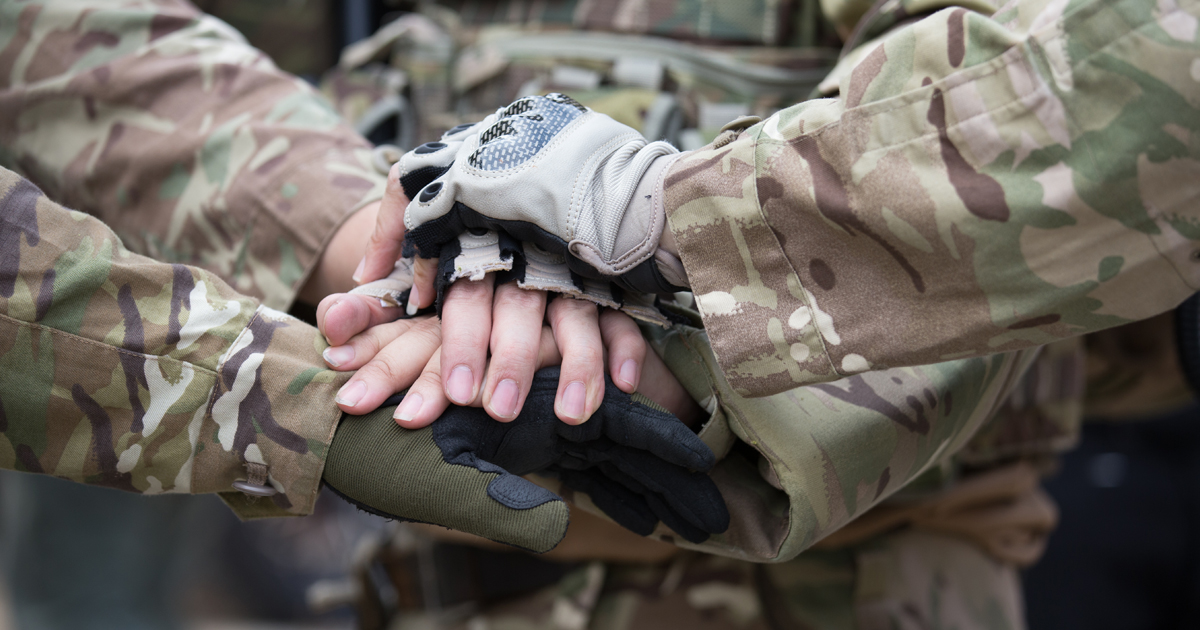Veterans Supporting Veterans

Seamus Kneeland MBA’20 believes in service. That’s a big reason why he joined the Marine Corps.
As a sergeant in the infantry in 2007 and 2008, he was stationed in the Iraqi city of Ramadi. Later, in 2011, he served in the desert of Afghanistan’s Helmand Province, where he was wounded when the blast from a roadside bomb hit his truck.
Looking back on his time in war, Kneeland admits to having conflicted feelings. “It was intense. There were parts I loved, especially the camaraderie with my brothers,” he says. “And there were times I hated it. I saw my friends get hurt, and I got hurt. It was a life-changing experience, but it made me appreciate things like I never did before.”
Kneeland was discharged from the Marines in 2012, but that obligation to serve others hasn’t left him. He’s now a firefighter in Plymouth, Massachusetts, working two 24-hour shifts a week, a tough schedule that allows him lots of free time to focus on his studies at Babson.
Kneeland also hasn’t forgotten about his comrades in arms. In the military, he and his fellow soldiers looked after each other, and now at Babson, that hasn’t changed. Kneeland, along with classmate Colin Daly MBA’19, worked to revive a campus veterans group that had been inactive in recent years. The pair thought the organization, the Babson Veterans Club, could be a vital source of support and community for students and alumni who are veterans.
“The camaraderie I had in the military was one of the defining things of my life,” says Kneeland, the group’s president. “To feel that while in school makes Babson that much better.”
The Right Thing
Babson has had a long connection to the military. During World War II, Babson closed and was turned over to the Navy Supply Corps School, which trained more than 2,000 reserve officers on campus. In the ensuing decades, the Army would send many officers to Babson to receive their MBAs.
To be a veteran at a college, though, can be difficult. “The path from military life to academic success is not well marked,” says Dwight Gertz. A Navy veteran and a senior lecturer in management at Babson, Gertz serves as faculty advisor to the veterans group.
One obstacle veterans face is that, while there are many valuable government benefits available for veterans going to college, they are often not easy to locate or understand, says Gertz. Veterans also can find that their experiences aren’t always relatable to classmates and professors who haven’t been in the military. “It took me quite awhile before I was able to bring my military experience into classroom discussions in terms that were truly helpful,” says Gertz. Translating military experience into civilian terms is a problem veterans face when looking for jobs as well.
The members of the Babson Veterans Club aim to help each other through these challenges. “The club is committed to supporting our brothers and sisters so that no veteran falls through the cracks and feels forgotten, abandoned, or neglected,” says Daly, a Navy veteran. “We swore an oath to protect one another both on and off the field of battle. It’s simply the right thing to do.”
Natural Leaders
Open to both Babson students and alumni, the veterans group runs a variety of programs. At the Boston Babson location, the club organizes a social for veterans from area schools, and on Veterans Day, the club holds a lunch to honor those who served. The group also established a leadership award, and it’s hoping to create a permanent veterans memorial on campus.
And the club holds events, whether a ski trip or pub nights, where members can simply be together with people who share so many of the same experiences. “When I’m around other veterans, I feel like I can relax a little more,” says Kneeland. “We have a unique way of looking at things.”
Kneeland says that veterans contribute much to life at Babson. “The veteran students become the natural leaders in their groups,” he says. “I think the Babson way of going about solving problems really matches with military thinking. Most military leaders have to be innovative problem solvers. You’re given a limited amount of time and limited resources to get things done.”
Through the club, he wants to help these students have the best experience they can at Babson. “I want veterans to come to this school and love it as much as I do,” he says.
Posted in Community




